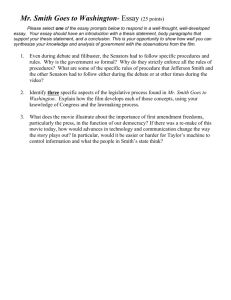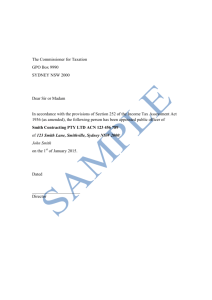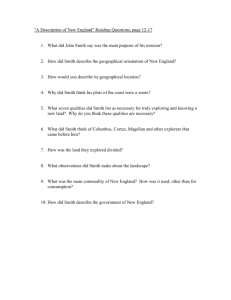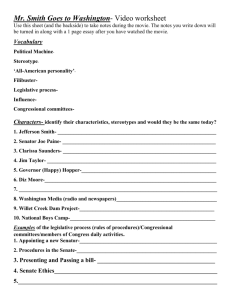Research Paper Details - Warren County Schools
advertisement
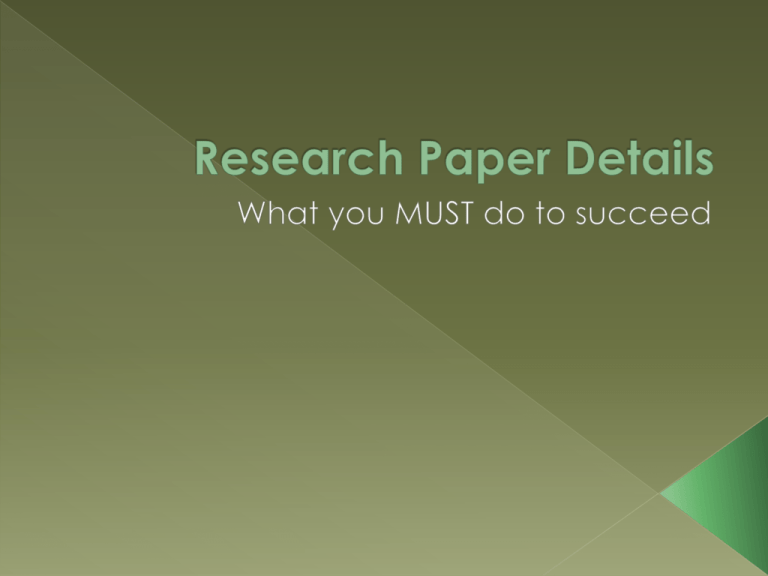
YOU are NOT an expert Your credibility depends on the strength of the experts you quote and paraphrase Not only must you cite them, but you must also introduce them BEFORE quoting or paraphrasing them so you reader KNOWS why they are an expert All borrowed ideas or words MUST be accompanied by a signal phrase SIGNAL PHRASE: › names the author AND › alerts the reader that the information is from a credible source The signal phrases MUST connect the quote OR paraphrase to the point you are trying to make / argue Dr. George Smith, Professor of Chemistry at East Los Angeles Community College, another supporter of cloning, and the President of the Human Cloning Foundation, believes that science fiction works have created hysteria in the popular media. Smith argues, “From Frankenstein to The Sixth Day, our popular media has done nothing but stir up the public’s anxiety about monsters” (Smith 25). His views on the popular media tell us . . . A view that contradicts Smith’s is articulated by Rev. John Brown, minister of the Tabernacle Church in Dallas, Texas, who contends that, “God never intended for man to participate in his acts of creation. He will never condone our interference in his plan for us” (Brown 5). Brown makes it clear that . . . “The National Review, a publication well known for its conservative stance, includes Brown’s opinions on a regular basis.” In the words of researcher Dr. Herbert Terrace, an aeronautical engineer at NASA, “. . .” (Terrace #). Terrance answers these objections with the following analysis: “ . . .” ( ). As physicist, Flora Davis, senior VP in charge of Operations at NASA, has noted, “. . .” ( ). Samuel Hoover, personal trainer, points out that “ . . .” ( ). “ . . . ,” claims Noam Chomsky, politician ( ). NOT—In Smith’s essay, he says NOT - “ . . .” In Smith’s essay, it says “ . . . ”, NOT - Smith’s essay states “. . . ” BUT—In his essay, Smith states “. . . ” Do NOT allow your sources words to dominate YOUR writing. ONLY use quotes: › When essential – when the author’s exact words are the only, or by far the best, way to say something › If the author’s own words are particularly forceful or crucial to interpretation › Or, if referencing a passage from a poem, short story, novel, or play 90% of writing is editing Delete every unnecessary word › “Vermont is a state that attracts visitors because of its winter sports.” Combine simple sentences Rewrite sentences for clarity and flow WHO – › For people – all people, only people WHICH – › For things – not for people THIS – must answer, “this what?” THEY – must answer, “who are they?” SUCH – must answer, “such as what?” THAT – check: who, which, or that? ONLY use a pronoun every OTHER instance – alternate with the noun. AND — means “in addition to” BUT — implies an exception, opposition, or contrast: “however,” “on the other hand,” “yet,” “nevertheless” BECAUSE & SINCE — “We will not go, because it is raining” is the strongest way of expressing the relation of cause and effect. In “Since it is raining, we will not go,” the emphasis is shifted from the cause to the effect, which becomes the prominent idea. HOW — means “in what manner” or “to what extent.” It is often misused, replacing “that” NOR, OR —Nor is the correlative of neither Or is the correlative of either THEREFORE, SO — Therefore =“for this reason” so has other meanings THOUGH/ALTHOUGH — Though means “notwithstanding,” & “in spite of the fact that.” WHEN, WHILE— While = lapse of time When = a date/period Inconsistent verb tense: Advocates of thorough hand washing believe this practice will help prevent illness; there have been those who challenged this view. Consistent verb tense: Advocates of thorough hand washing believe this practice helps prevent illness; there are those who challenge this view. While Lee was answering the doorbell, the intruder had entered through the bedroom window. While Lee was answering the doorbell, the intruder was entering through the bedroom window. Contractions are INFORMAL, therefore are not to be used in FORMAL writing, UNLESS within a direct quote. Contractions lead to grammatical ERRORS When you speak, you have fractions of a second to put the words, meanings, and sounds in order to make a coherent sentence. When you are writing, you have time, so DO NOT take shortcuts like contractions.
